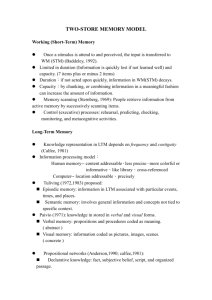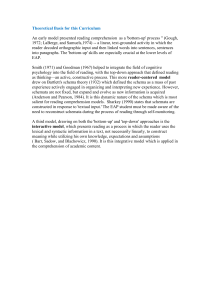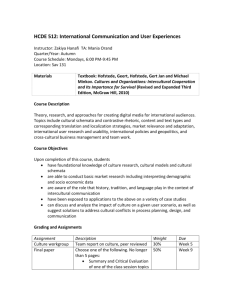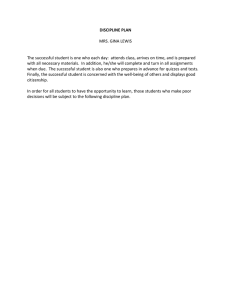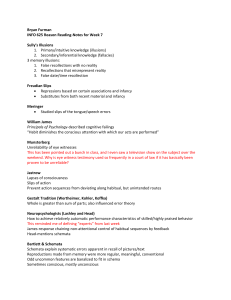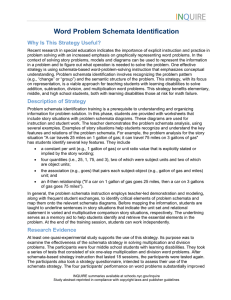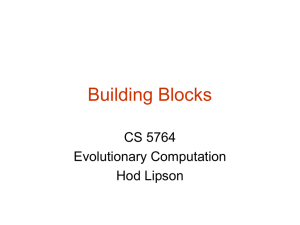English 102: JC Clapp Foucault’s Panopticism: List of Terms
advertisement
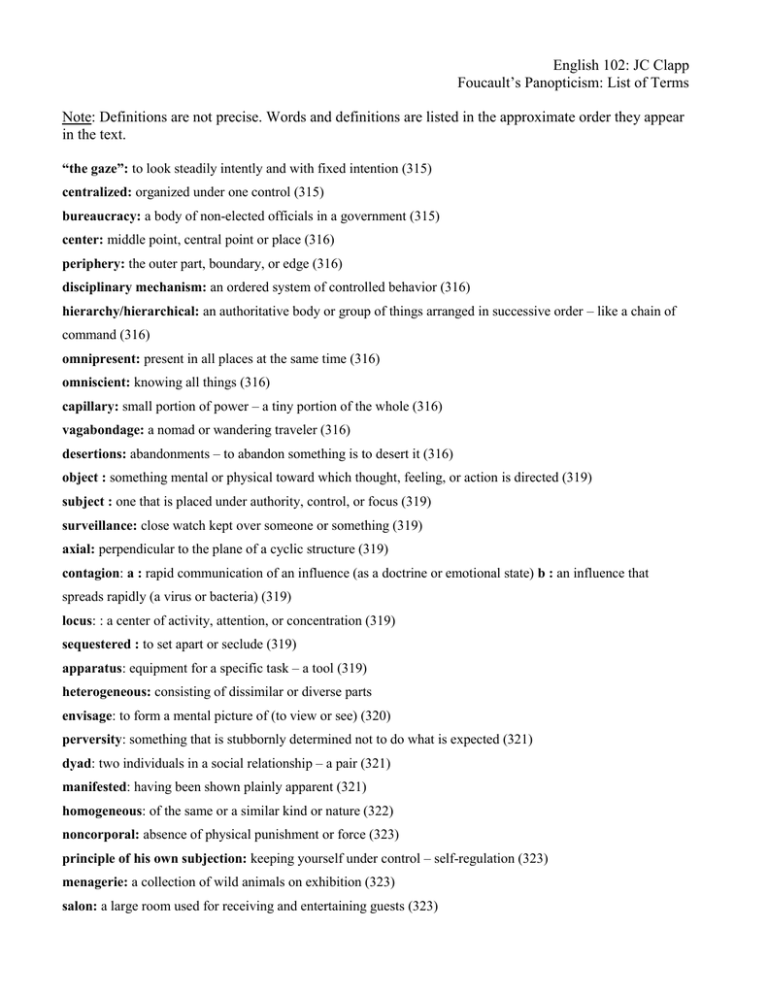
English 102: JC Clapp Foucault’s Panopticism: List of Terms Note: Definitions are not precise. Words and definitions are listed in the approximate order they appear in the text. “the gaze”: to look steadily intently and with fixed intention (315) centralized: organized under one control (315) bureaucracy: a body of non-elected officials in a government (315) center: middle point, central point or place (316) periphery: the outer part, boundary, or edge (316) disciplinary mechanism: an ordered system of controlled behavior (316) hierarchy/hierarchical: an authoritative body or group of things arranged in successive order – like a chain of command (316) omnipresent: present in all places at the same time (316) omniscient: knowing all things (316) capillary: small portion of power – a tiny portion of the whole (316) vagabondage: a nomad or wandering traveler (316) desertions: abandonments – to abandon something is to desert it (316) object : something mental or physical toward which thought, feeling, or action is directed (319) subject : one that is placed under authority, control, or focus (319) surveillance: close watch kept over someone or something (319) axial: perpendicular to the plane of a cyclic structure (319) contagion: a : rapid communication of an influence (as a doctrine or emotional state) b : an influence that spreads rapidly (a virus or bacteria) (319) locus: : a center of activity, attention, or concentration (319) sequestered : to set apart or seclude (319) apparatus: equipment for a specific task – a tool (319) heterogeneous: consisting of dissimilar or diverse parts envisage: to form a mental picture of (to view or see) (320) perversity: something that is stubbornly determined not to do what is expected (321) dyad: two individuals in a social relationship – a pair (321) manifested: having been shown plainly apparent (321) homogeneous: of the same or a similar kind or nature (322) noncorporal: absence of physical punishment or force (323) principle of his own subjection: keeping yourself under control – self-regulation (323) menagerie: a collection of wild animals on exhibition (323) salon: a large room used for receiving and entertaining guests (323) furtive: marked by stealth – sly miasmas: unhealthy vapors mechanisms of observation: methods of watching things (324) utopia: a perfect, ideal space or place (325) polyvalent: serves for a variety of reasons – not just one (325) mechanism of power: power machine – methods of maintaining power (325) political anatomy: detailed analysis or examination of a political structure (327) network of mechanism: network of working parts of a whole (327) network: intricate system (328) discipline-mechanism: way of training that produces obedience (328) sectors of society: parts or sections of society – a class system (329) larceny: unlawful taking of personal property – stealing (329) brigand/brigandage: bandit – one who lives by plunder and is usually a member of a gang (329) licentiousness: the trait of having total disregard for strict rules of connections (330) interstitial: reaching into small spaces (332) metadiscipline: above and beyond normal discipline- a kind of philosophy of discipline (332) disciplinary society: a society built upon discipline, as if in martial law. (333) civilization of spectacle: a society which everything is placed for the viewing pleasure of many (333) schemata: a mental codification of experience that includes a particular organized way perceiving cognitively and responding to a complex situation or set of stimuli. (332) codification: to make a code out of something (part of schemata) cognitively: based on or capable of being reduced to empirical factual knowledge (part of schemata) empirical: originating in or based on observation or experience that can be proved or disproved by these things (part of schemata) infrapenality: an area within which people are subject to become penalized (punished). (332) Ecclesiastical: of or relating to a church (335) circumvent: to make a circle around – to go around juridico-political structures: existing power structures that compel people to obey laws that are made for them (337) infralaw: all the different powers that help our society to move along smoothly (338) infinitesimal: teeny tiny – every little bit (338) counterlaw: going against the powers of society (338) reciprocity: mutual exchange of privilege epistemology: the study of knowledge and the study of how we know what we know egalitarian: on the premise of equality coercion: to force somebody to do something – to dominate with force physic-political technique: a mechanism of small techniques of discipline inglorious: dishonorable – not glorious
